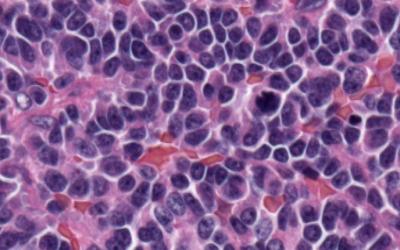
Regulation of Senescence in p53 mutant medulloblastoma
Medulloblastoma (MB) is the most common malignant central nervous system tumor in children. Current treatment, involving a combination of surgery, chemotherapy, and radiation, is associated with significant treatment-related morbidities. Alternative treatment is urgently needed. MB has 4 major genetic subgroups: WNT, SHH, Group 3 and Group 4. A subset of SHH patients with p53 mutations have the worst prognosis. In addition, p53 mutations have been identified as a key molecular event that leads to relapse of MB, for which there is no effective therapy. Senescence is a critical tumor-suppressive mechanism in MB by limiting proliferative capacity and progression to advanced tumors; it also contributes to sensitivity to radiation. p53 mutation can promote tumor progression by preventing induction of senescence. Therefore, promotion of senescence in a p53 independent manner can be a novel strategy to overcome treatment resistance in p53 mutant MB. Currently, we are investigating the underlying mechanisms that induce senescence in p53 mutant MB, with the goal to develop novel therapeutic for those patients.
Related Publications:
Fang FY, Rosenblum JS, Ho WS, Heiss JD. New Developments in the Pathogenesis, Therapeutic Targeting, and Treatment of Pediatric Medulloblastoma. Cancers (Basel). 2022 May 3;14(9):2285.

